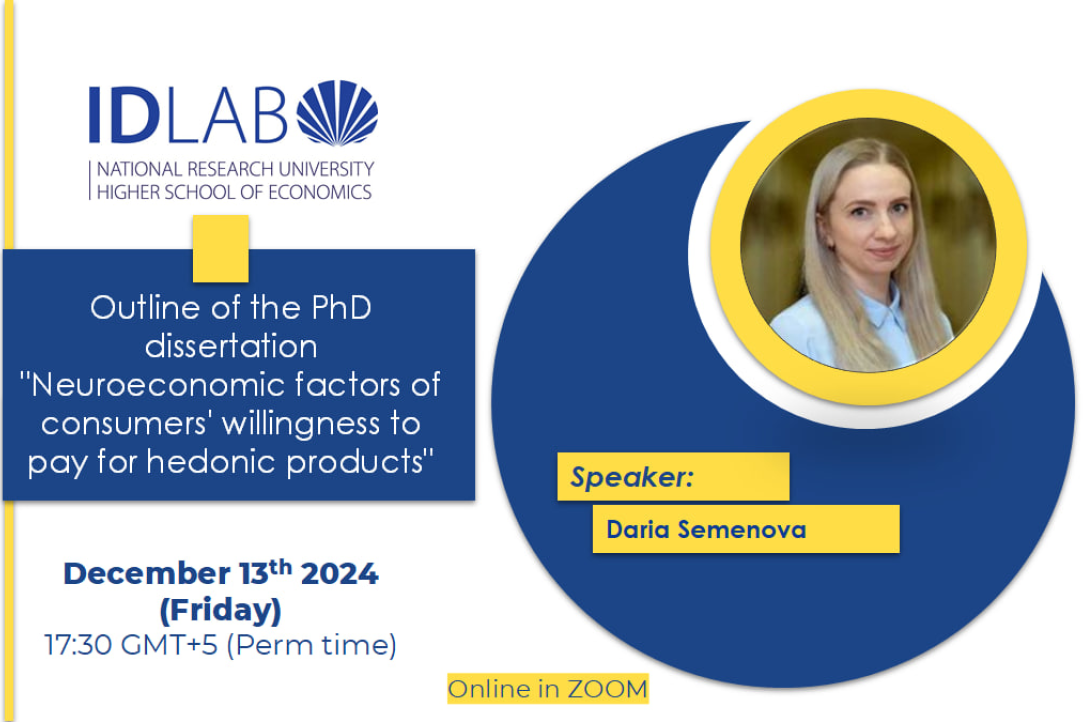IDLab Seminar on Neuroeconomic Factors of Consumer Willingness to Pay
At the recent IDLab seminar, Daria Semenova, a research assistant at IDLab, presented an abstract of her dissertation on the topic: "Neuroeconomic Factors of Consumers' Willingness to Pay for Hedonic Products"

Daria Semenova's research focuses on studying the neuroeconomic factors that determine decisions regarding willingness to pay for hedonic products, such as dark chocolate and beverages flavored with cola and honey. The central element of the study is the cognitive neural response—a physiological reaction of the brain measured using electroencephalography (EEG). This indicator reflects product perception at a subconscious level and helps uncover hidden mechanisms influencing consumer behavior.
Through three series of laboratory experiments, Daria empirically demonstrated for the first time that the cognitive neural response plays a significant role in willingness to pay for hedonic products. The second finding of the study showed that this neural response acts as a moderator of the influence of healthy eating attitudes and cravings for sweets on the perception and purchasing decision of cola-containing beverages. This effect is particularly pronounced in situations where consumers are not provided with information about the beverage brand, highlighting the key role of the neural response in shaping willingness to pay.
Special attention was given to studying the packaging effect on the perception of hedonic products. It has been experimentally proven that packaging design significantly influences willingness to pay for both chocolate and cola-flavored beverages. The research employs a unique experimental approach based on neuroscience methods, distinguishing it from traditional solutions in the literature.
Thus, Daria Semenova's work reveals how hidden cognitive and physiological reactions shape purchasing decisions. The research makes a significant contribution to the development of neuroeconomics and neuromarketing, opening new perspectives for both the scientific community and business.
